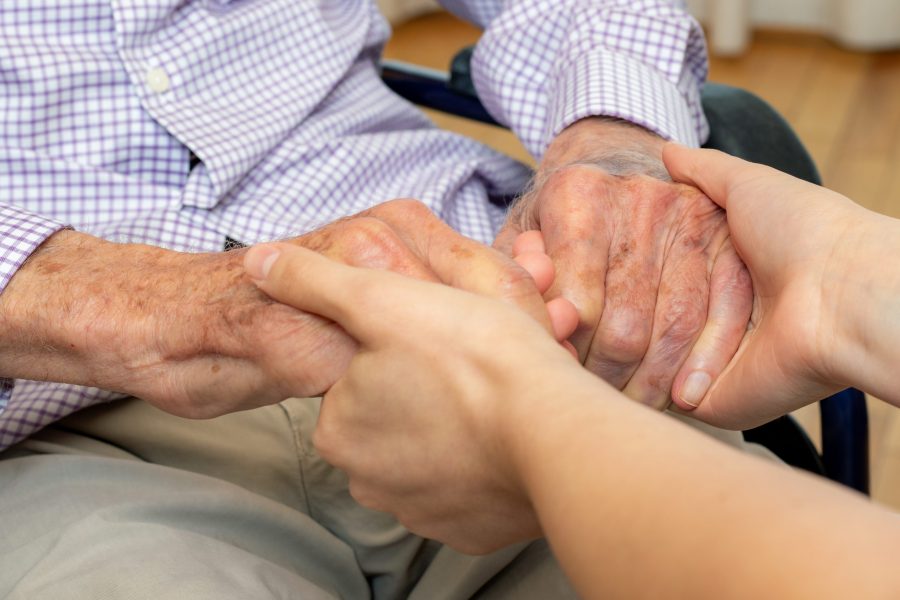As your parents progress in age, it’s important to keep an eye on how they’re doing. This equates to regular visits, phone calls and more. It’s through close contact that you’ll be able to detect changes that are reasons for pause. It can be a little worrisome to think that your parent could be declining right before your eyes. Thankfully, there are plenty of ways to detect signs, stay ahead of a potential emergency and avoid a really difficult transition. Consider some of the best ways to recognize that your aging parent needs additional help at home.
Lack of Curb Appeal
If your parent never really took much of an interest in maintaining the exterior appeal of their home, it only makes sense that they wouldn’t care as time progressed. However, if they always maintain a beautiful curb appeal throughout the seasons, pay attention to when the lawn looks disheveled and abandoned. In addition to getting a lawn care service to take care of the exterior details, it might be time for a home care professional to provide special care for your parent. The same sentiment holds true for the interior. If the house looks unkempt, they might be overwhelmed, exhausted and unable to keep up with the upkeep.
Excessive Clutter
The state of someone’s home, as previously mentioned, can be a significant indicator of how they are doing physically and mentally. If your parent experiences sudden changes in the upkeep of their home, it could indicate a problem. Watch for excessive clutter and hoarding tendencies. Clutter around the home can easily become dangerous for seniors, as it can put them at risk to trip and fall and seriously injure themselves. It can also be a sign that they are overwhelmed and feel unable to take care of their responsibilities by themselves.
Missed Meals and Poor Nutrition
There are a few ways you’ll be able to pay attention to nutrition. Take a look inside the fridge. If it’s noticeably empty or filled with rotting foods, this can indicate that they’re not eating enough. You can also pay attention to their body. If they’ve lost a lot of weight or gained a lot of weight, this might indicate two problems. The first problem might be that they’re in an emotional tailspin of stress. As a result, they don’t eat much or they eat too much. The other problem might be that there’s a health concern or disease that’s brewing under the surface.
Missed Medications
Along similar lines, it can be easy to start neglecting your personal healthcare when you’re struggling. Medications, specifically, are some of the most important aspects of personal care for those who need them. If you notice that your parent is neglecting to take their medications on time or at all, this may be a sign that they require assistance to stay on top of it. Failing to do so could lead to serious health consequences.
Mood Changes
The emotional and mental health changes of a person matter at all stages of life. This is especially true when a person is aging. The changes that come with old age–including retirement, death of peers, and health issues–can easily become overwhelming. If your parent’s mood changes often, don’t just dismiss the changes as your parent is having a bad day. They may be overwhelmed, depressed or in their own way, crying out for help. Pay attention to these shifts in mood and make sure to ask them how they are doing on a regular basis. It’s possible that they could benefit from mental health treatment.
Forgetfulness
Pay attention to your parent in regular conversation. If they seem forgetful or they lose their train of thought often, track their progress and alertness. Diseases like Alzheimer’s and dementia manifest first in these types of symptoms. If they start frequently forgetting what you’ve told them, misplacing items excessively, or having perceptions that are inaccurate, don’t push this off to the side. It could be a sign they need help and may need to be evaluated by a medical professional to see if there is an underlying issue.
Mobility Challenges
In our old age, many of us run into health issues that can limit our mobility. Whether it is arthritis, an injury, or another condition, it can become difficult for your parent to get around the house like they used to. Mobility issues can make daily tasks like going up and down the stairs, showering, and cleaning substantially more difficult. If your parent is struggling to get around effectively, it may be a good idea for them to receive professional help. If mobility is severely limited, it may even be a good idea for them to relocate to a ground-level home that is more accessible.
When you’re transitioning to the caretaker of your parents, it can be an extremely emotional experience. After all, for your entire life, you’ve only known your parents as your caretakers. With the role reversal, there can be resistance on both sides. This is why it’s important to notice the signs as they arise. As you see various signs, resist the urge to procrastinate or brush them off as minor. Even if you find yourself too busy to keep up with their needs, you can hire home care professionals to assist with this. The best approach overall involves facing this new reality as you protect and cherish the time you still have together.



